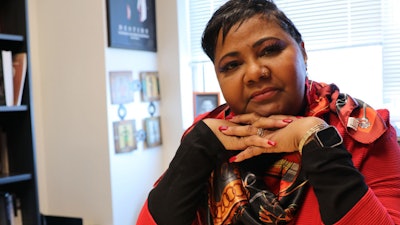By Drs. Donna Y. Ford, Erik M. Hines, Edward C. Fletcher Jr, Tanya J. Middleton & Renae D. Mayes
The new school year is upon us. With it comes our individual and collective hopes and concerns about the quality of life in schools for Black students. Simultaneously, we have hopes and concerns about the preparation of teachers – majority white (80%) and females (77%) -- and others -- to work in anti-racist, equitable, and culturally responsive ways with Black students. Our hopes and concerns also pertain to school counselors, mental health providers, and administrators; they are also predominantly white. Dr. Donna Y. Ford
Dr. Donna Y. Ford
Increasingly, studies and reports address the inadequate preparation of educators in higher education courses and degree programs, as well as professional development. Decades of data reveal that this inadequate educator training has negative outcomes of Black students more than other student groups. Specifically, we need educators who are anti-racist, equitable, and culturally responsive.
School systems, especially ones in urban areas, have been asking questions about cultural competency for at least the last five to 10 years. We are not aware of the specific race-related questions teachers, school, counselors, mental health providers, and administrators ask of applicants during the interview and hiring process and protocol.
However, we are aware that teachers’ racial biases contribute to lowered expectations for students of color, discriminatory disciplinary practices, and curricula that don’t represent students’ cultures. But what if districts could screen out people with those biases during the hiring process?
The formal interview is no time for the search committee and administrators to shy away from directly asking applicants questions and giving scenarios about equity, diversity, and inclusion. Their views about and experiences is particularly important given recent politicized pushback on teaching about Black history, which has been prominent in the news and social media. Vice President Harris pushed back against Florida Governor DeSantis’ outrageously false and ignorant claim that slavery was not bad because slaves learned a trade.
Further, what do educators think about the extensive overrepresentation of Black students in special education and discipline (expulsion and suspension), along with their underrepresentation in gifted and talented education, Advanced Placement, and other service and programs for advanced students? Do applicants believe that racism exists in schools? How do they explain the achievement gap?
As the title states, we wish decision makers could administer a lie detector test or truth serum to educators working with Black students. We cannot, so, instead, we share a dozen essential topics and questions that need to be asked in serious and unapologetic efforts to hire educators who are not just allies, but also accomplices, and co-conspirators.
1. How comfortable do you feel working with Black students? Are you more or less comfortable working with Black boys or Black girls?
2. What strategies do you use to build relationships with Black students?
3. Do you believe that Black students are as capable as white students? Explain your response.
4. If Black students are not doing well in your class, what are the reasons?
5. Why does the Black-white achievement gap exist?
6. Black students are overrepresented in suspensions. Why do you think this is so?
7. Black students are overrepresented in special education. Why do you think this is so?
8. Black students are underrepresented in gifted and talented education, Advanced Placement, and other courses for advanced students. Why do you think this is so?
9. Why are Black families often less involved in schools than white families?
10. What are your views about Black History Month?
11. What multicultural literature have you used, or will you use, in classes?
12. Do you believe that racism exists in school settings? Why or why not?
While this discussion focuses on interviewing applicants, the same questions are relevant for current educators. Their responses can help explain why Black students are doing or not doing well with certain educators and in certain classrooms, buildings, and school districts. We urge both higher education faculty and administrators and P-12 leaders and decision makers to prepare current and future educators to be anti-racist, equitable, and culturally competent. Black students and educators will be better off.
Dr. Donna Y. Ford is a Distinguished Professor of Education and Human Ecology at The Ohio State University
Dr. Erik M. Hines is a Professor in the Division of Child, Family, and Community Engagement at George Mason University
Dr. Edward C. Fletcher Jr. is a Distinguished Professor of Education and Human Ecology at The Ohio State University
Dr. Renae D. Mayes is an Associate Professor of Counseling at the University of Arizona
Dr. Tanya Middleton is a Clinical Assistant Professor of Counselor Education at The Ohio State University






















